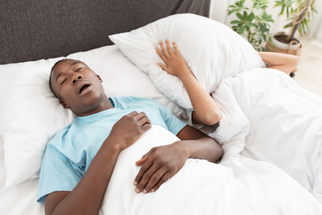The Connection Between Sleep and Sexual Health
How Quality Rest Fuels Desire
Ever feel like your sex life hits a snooze button when you’re not getting enough sleep? Well, you’re not alone! Sleep and sexual health are more intertwined than you might think. It’s like the relationship between a good cup of coffee and a productive day—when you’re well-rested, everything just seems to click, including your libido.
Why Sleep Matters for Sexual Health
Let’s start with the basics. Sleep is your body’s time to repair, recharge, and reset. When you shortchange yourself on sleep, it’s not just your energy levels that take a hit—your sexual health does too. Think of sleep as the foundation of a house; if the foundation is weak, the whole structure wobbles, including your desire and performance in the bedroom.
The Science of Sleep and Libido
So, what’s the science behind this connection? It turns out that sleep plays a crucial role in regulating hormones, including those that influence sexual desire. For men, a lack of sleep can lead to a drop in testosterone levels, which is essential for libido. It’s like trying to drive a car without enough fuel—you might get going, but not for long.
For women, sleep deprivation can lead to increased stress levels, which in turn can reduce sexual desire. Cortisol, the stress hormone, often spikes when you’re running on empty, leaving little room for feelings of arousal. It’s as if your body is saying, “I’m too tired to think about sex right now.”
Real-Life Example: The Impact of Sleep on a Couple’s Connection
Consider the story of Anna and Mark, a couple in their mid-30s juggling demanding jobs, a toddler, and a new puppy. With their hectic schedules, sleep often took a backseat, and so did their sex life. They noticed that they were more irritable, less connected, and had little interest in intimacy. After a candid conversation, they decided to prioritize sleep—setting earlier bedtimes and creating a calming bedtime routine. Within a few weeks, they found themselves more in sync, both emotionally and physically. It wasn’t just about getting more sleep; it was about reigniting their connection.
How Sleep Affects Sexual Performance
But it’s not just about desire—sleep also impacts sexual performance. When you’re sleep-deprived, your body’s ability to function at its best is compromised. For men, this can mean difficulties with maintaining an erection or reduced stamina. For women, it can lead to decreased lubrication and difficulty achieving orgasm. It’s like trying to perform at a concert when you haven’t rehearsed—you might get through it, but it won’t be your best show.
On the flip side, when you’re well-rested, your body is better equipped to handle the physical demands of sexual activity. You’re more likely to feel energized, focused, and in the moment, leading to a more satisfying experience for both you and your partner.
The Role of Sleep in Emotional Intimacy
Let’s not forget about the emotional side of things. Sleep plays a significant role in mood regulation, which is crucial for maintaining emotional intimacy in relationships. When you’re sleep-deprived, you’re more likely to feel irritable, anxious, or depressed—none of which are conducive to a healthy sex life. It’s like trying to have a meaningful conversation when you’re distracted by a million other things—it just doesn’t work.
Getting enough sleep helps stabilize your mood, making you more patient, empathetic, and emotionally available to your partner. This, in turn, fosters a deeper connection and a more fulfilling sexual relationship.
Tips for Improving Sleep and Enhancing Sexual Health
If you’re ready to boost your sexual health by improving your sleep, here are some tips to get you started:
- Prioritize Sleep: Make sleep a non-negotiable part of your routine. Aim for 7-9 hours of quality sleep each night, and try to go to bed and wake up at the same time every day, even on weekends.
- Create a Relaxing Bedtime Routine: Wind down before bed with activities that promote relaxation, such as reading, taking a warm bath, or practicing deep breathing exercises. Avoid screens at least an hour before bed, as the blue light can interfere with your body’s natural sleep-wake cycle.
- Keep Your Bedroom Cool and Dark: A comfortable sleep environment is key to getting quality rest. Keep your bedroom cool, dark, and quiet, and invest in a comfortable mattress and pillows.
- Limit Caffeine and Alcohol: Both caffeine and alcohol can disrupt your sleep patterns, so try to limit their consumption, especially in the hours leading up to bedtime.
- Manage Stress: High stress levels can interfere with both sleep and sexual health. Incorporate stress-reducing practices into your daily routine, such as meditation, yoga, or journaling.
An Empowered Approach to Sexual Wellness
Your sexual health is a vital part of your overall well-being, and sleep is a foundational aspect of that health. By prioritizing quality rest, you’re not only enhancing your libido and performance but also nurturing the emotional intimacy that fuels a satisfying sex life. It’s about taking care of your body and mind, so you can fully enjoy the pleasures of life.
So, if your sex life could use a little boost, start by looking at your sleep habits. You might be surprised at how much better everything feels when you’re well-rested. Here’s to sweet dreams and even sweeter connections!

